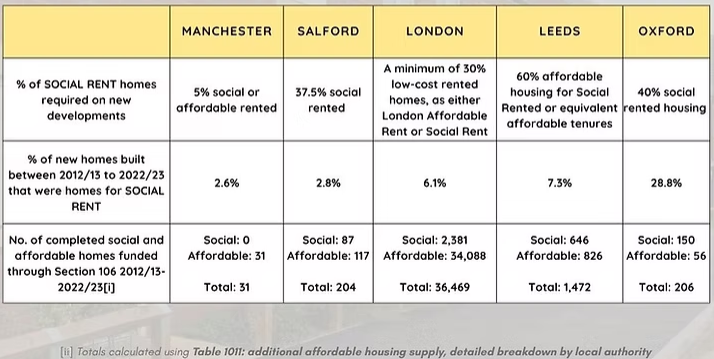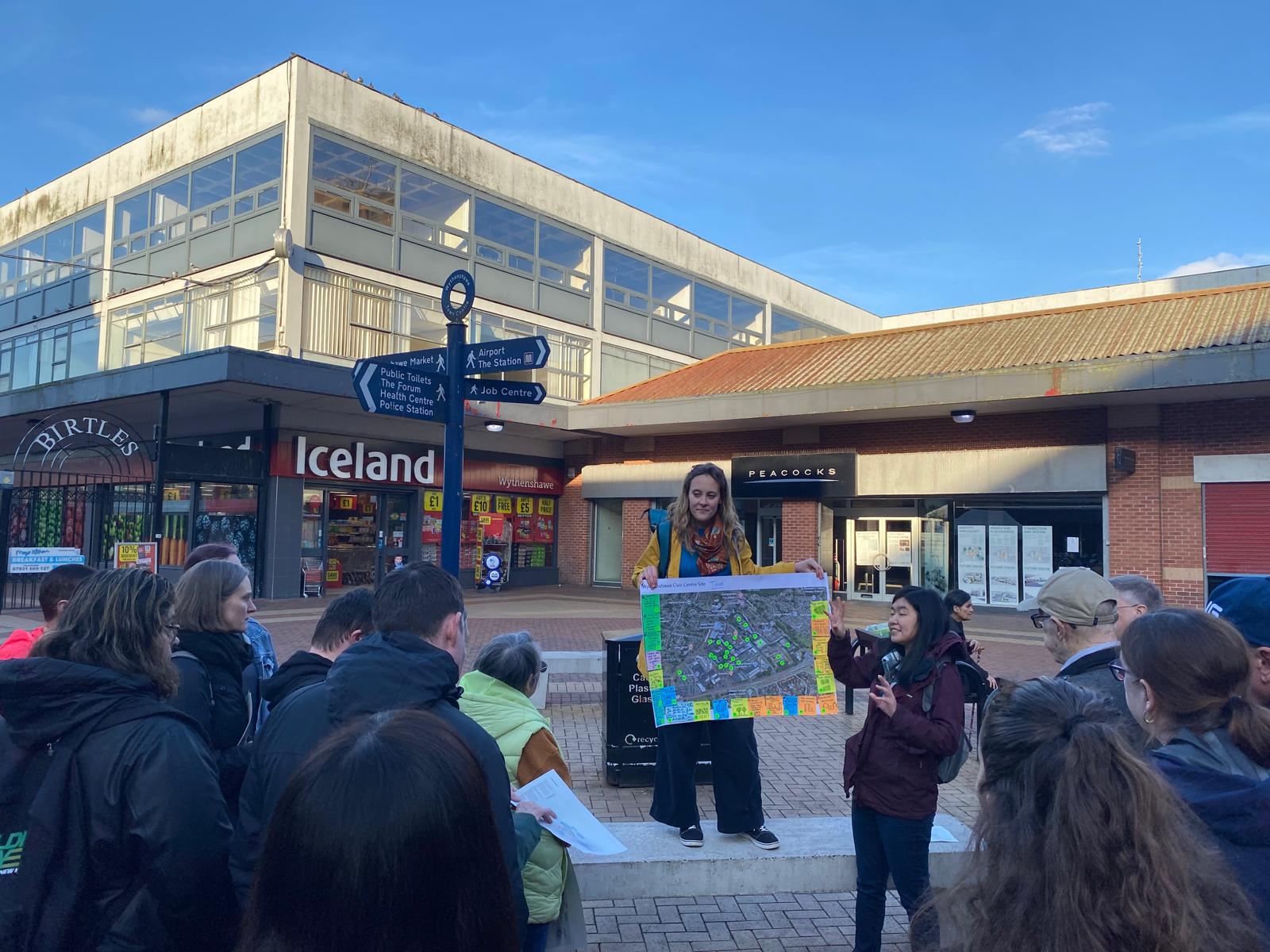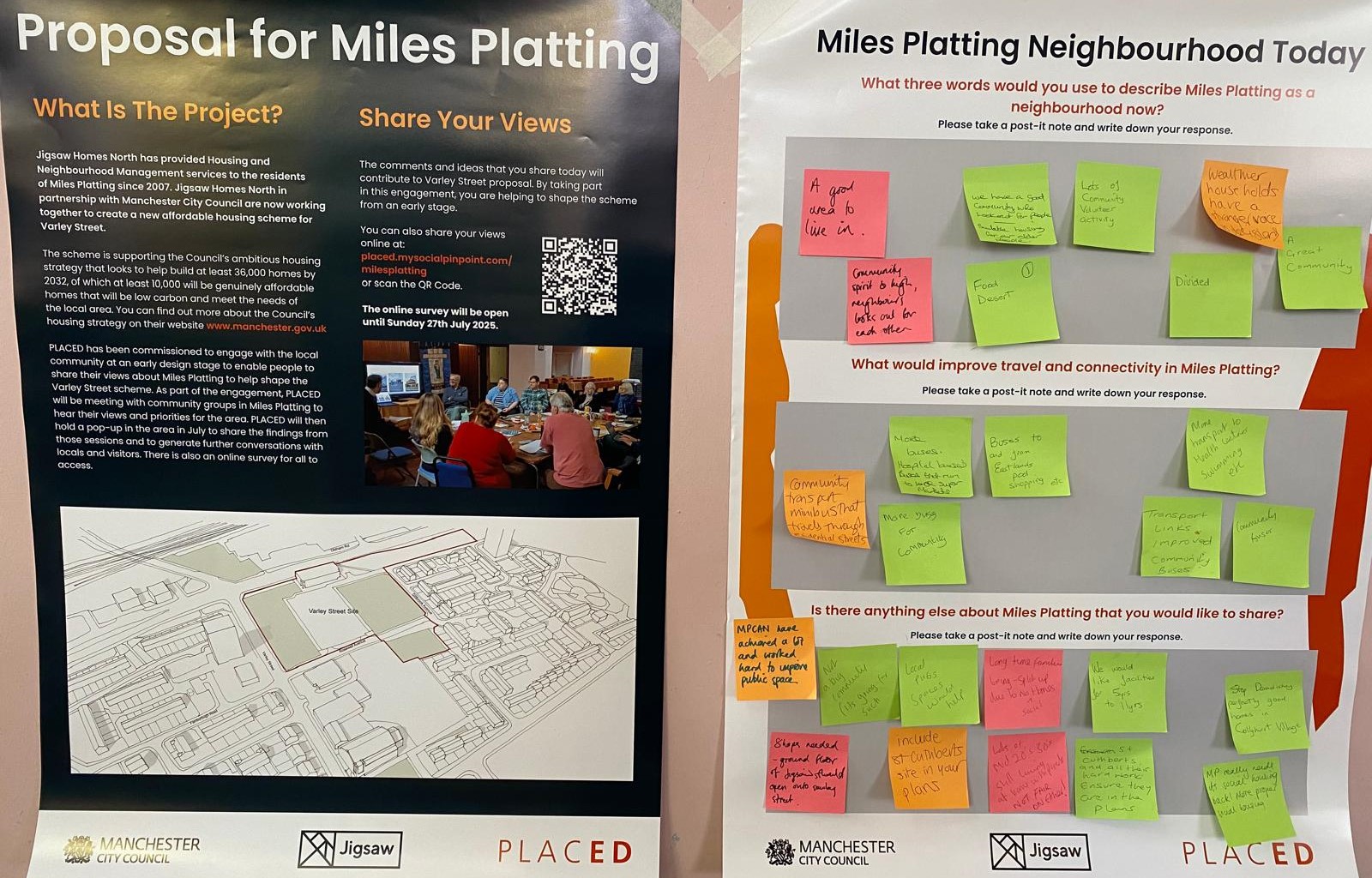A Big Step Forward

Social Homes for Manchester are pleased to announce that Manchester City Council (MCC) passed a motion last Wednesday 16 July to increase social and affordable housing targets in the city.
Moving away from the 2012 policy where only 5% of new housing developments of 15 homes or above had to be social or affordable rents; MCC have now voted for a new set of targets under which 21% of new housing developments of 10 homes or above must be social rent.
The original motion was brought by the Lib Dems after a Green Party amendment to a motion in February 2025 endorsing Social Homes for Manchester’s ask for 30% social rent was not agreed by council.
The new city policy will require 30% of all new housing developments of ten homes or more to be ‘affordable housing’ of which 21% should be social rent homes, a further 3% is to be Manchester Living Rent (which means within the Local Housing Allowance threshold), and 6% is to be low-cost home ownership options.
The new targets were a key focus of discussion at the Manchester Social Housing Commission on Thursday when Community Commissioners from Miles Platting, Hulme, Moss Side, and Wythenshawe thanked Executive Member for Housing and Development Cllr Gavin White and all elected members for listening to community concerns on the housing crisis:
“Last year when I walked in this room, I just thought no, it’s just going to be a load of talk, and nothing is going to change. But listening to the discussion around this table now, I just can’t thank you enough for all the hard work that you all do. Thank you on behalf of all the residents, and all the communities.” Zoe Marlow, Wythenshawe Central Network.
Councillor Gavin White said:
“We were pleased to see the council giving unanimous support for our view that 30% of our housing delivery should be affordable with 70% of this being for social rent. We all want to see more social, council, and genuinely affordable housing in our city, to tackle the housing and homelessness we face.
It has been good to engage with and listen to the social housing commission over the last year and ensure that our ongoing response and strategy as a council is truly ambitious to meet the needs of our city.
We are pleased to see the recent announcements by the Labour government of £39bn for new social and affordable housing over the next 10 years, with 60% of that being for social rent – we are already in discussions with government about how we can help with the accelerated delivery of these new social and affordable homes in Manchester.”
Next steps
The local plan with these revised targets and policies will be subject to an 8-week public consultation from mid-September 2025. While recognising this big step forward for the city in addressing the housing crisis, for Community Commissioners and the Social Homes for Manchester coalition, concerns remain about what this will mean in practice.
1. The evidence tells us that 32% of new build homes must be for social rent to address the housing crisis across GM.
Robust research into the housing crisis across England provides clear evidence that we need to deliver 32% social rent across Greater Manchester.[i] The Commission’s own evidence highlights the cost savings social rent achieves for government and how social rent is the only tenure that can address the crisis of more than 4,500 children in Temporary Accommodation and nearly 20,000 households on the waiting list for a social home in Manchester.
2. There is a groundswell of political will to build higher levels of social rent, and this is reflected in large increases in national grant.
21% social rent is a big step forward that should be celebrated, but we know that what we really need in Manchester is a minimum target of at least 30% social rent. MCC have been making great progress towards building higher levels of social rent even before Rachel Reeves announcement of £39 billion for social and affordable housing, and Angela Raynor’s follow up call for 60% of the homes delivered to be for social rent.
One example is the development of 69 low carbon homes with 100% available for social rent. Another is the planned development on the former Boddingtons site which is set to include 60% affordable housing including 22% social rent with 55% of this funded through grant and 5% funded through Section 106 contributions.
With such a significant increase in national investment and so much political support for social rent delivery at national and city-regional level, why not aim higher?
3. Developers must pay their share
Increased grant rate should not be an excuse for private developers making millions of pounds in profit to avoid a fair contribution to public benefit in the city.
Our comparative table of a range of English cities shows that historically in Manchester developers have been given a free ride when it comes to making contributions for social rent delivery.

In addition to adopting a minimum requirement of social rent homes on all new housing developments of ten units or more, MCC have the power to set a percentage of social rent homes onsite of every new development, which then puts the onus on the developer to demonstrate through transparent viability if this is not possible. It also gives the local authority more weight in the decision.
This would help avoid viability loopholes that many local areas see when negotiating with big developers via Section 106/planning obligation agreements.
Developer contributions could also be used to retrofit existing poor quality/poorly insulated social homes on a case-by-case basis, which would, where implemented, mitigate damp and mould, bring down energy bills, and reduce carbon emissions.
4. Increased Planning capacity, transparency, and accountability
To maximise the delivery of ecologically sustainable social rent homes we need increased investment in funding for local authority planning departments and capacity building and training for local Planning Committees (something Oxford City Council have done to positive effect).
The Manchester Social Housing Commission are advocating in partnership with others across the country for the protection of community voice and the voice of elected members in planning decisions through the retention of powers of local Planning Committees.
These committees and our Planning Officers need training and capacity building to enable them to understand the complexity of planning issues; to hold developers to account for their obligations; and to implement and enforce planning conditions through to the end of a development process.
All too often developers negotiate their way out of the conditions placed on their planning applications citing a lack of profitability using ‘viability assessments’ compiled by expensive planning consultants.
This must end, and Commissioners continue to work with Lords and MPs to push Government to recognise that they must close the viability loophole and invest in local authority planning departments to ensure they have the expertise, time, and resources to hold developers to account.
Locally, Social Homes for Manchester are asking MCC for a new set of Planning Transparency pages on their website to enable communities to search by ward and at city-scale for local area data on housing need; active planning applications; and levels of social rent requested and delivered through both Section 106 and other forms of investment.
Manchester residents: please sign up to join the SH4M mailing list here.
Ward councillors: please make your pledge to demonstrate your support for a target of 30% social rent on all new developments of ten homes or more.
Manchester-based organisations: please demonstrate your organisation’s support for the six asks of the SH4M coalition – join the coalition here.
Our six asks:
- At least 30% social rent in all new developments of over 10 units.
- Stronger scrutiny and public accountability for the setting and enforcement of Section 106 developer obligations and to focus these contributions on the delivery of ecologically sustainable homes for social rent.
- Establish a Commission on social rent housing for Manchester.
- Develop a practical strategy for how to increase delivery of Community Led Housing and other community-led facilities including from donations of council-owned land.
- Develop a practical strategy for the renovation and transfer of empty homes into sustainable homes for social rent.
- Ensure all new build homes of any type or tenure are ecologically sustainable.
The Commission referred to under (3.) already exists and Commissioners are working hard to explore the evidence base and develop recommendations. You can read more about this at: https://www.socialhomes4mcr.org.uk/commission.
[i] Bramley, G. (2024: p.69), Housing Requirements in England Revisited. Heriott-Watt University https://pure.hw.ac.uk/ws/portalfiles/portal/113960635/Bramley_G._HOUSING_REQUIREMENTS_IN_ENGLAND_REVISITED.pdf


